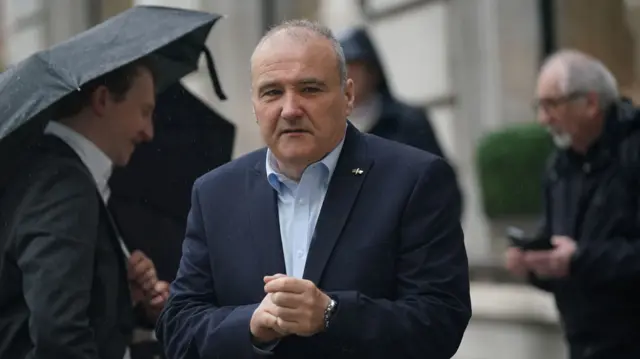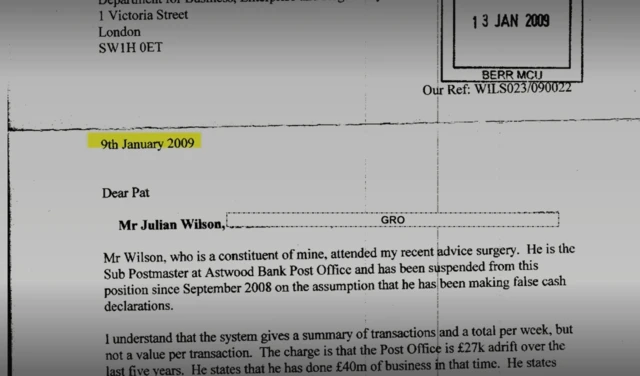Trust in what you're being told is how the system works - McFaddenpublished at 12:22 BST 18 July 2024
Earlier, Pat McFadden said politicians were "very reliant" on others telling the truth about Horizon IT failures.
Here's a snippet from the ongoing inquiry.



